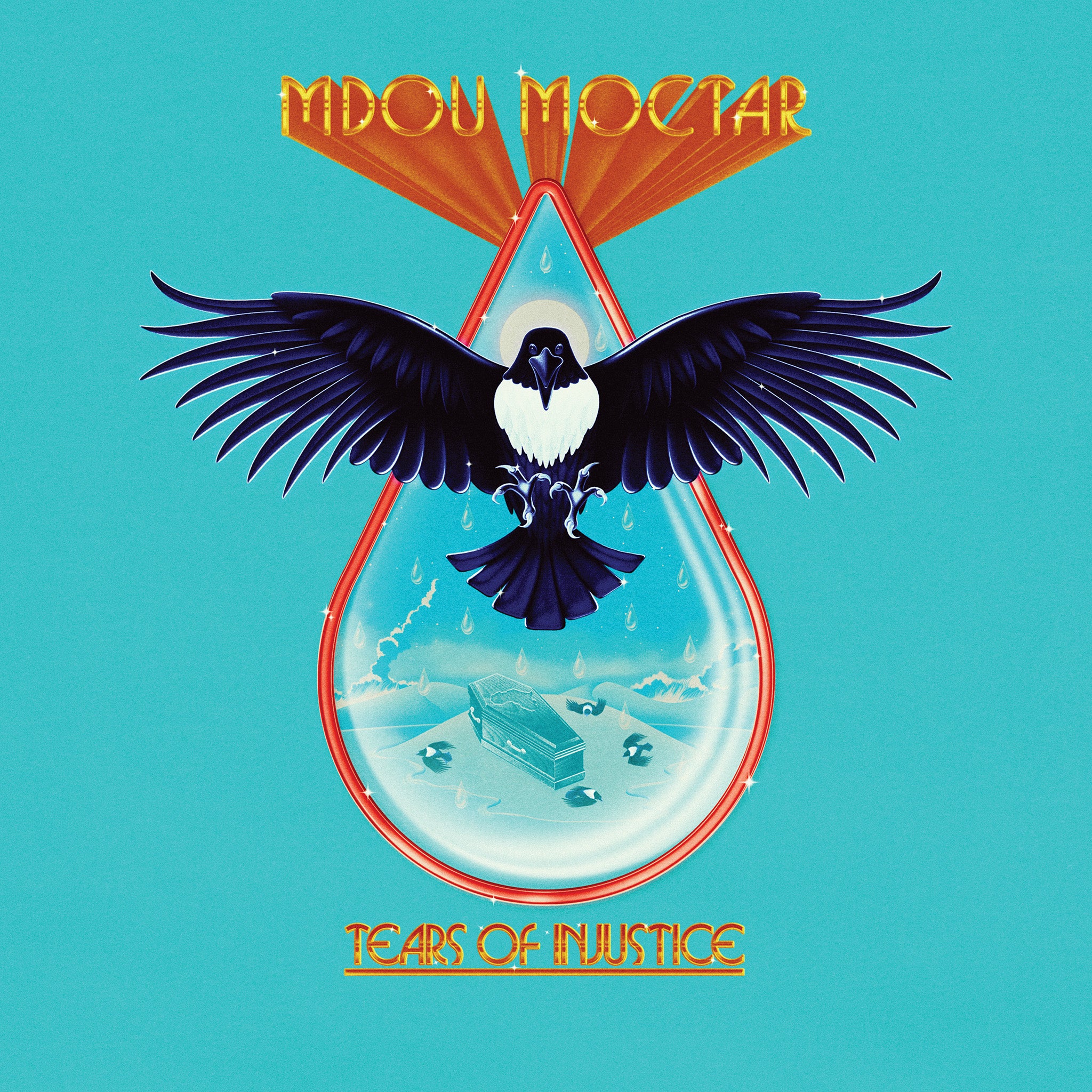







Mdou Moctar - Tears Of Injustice
Stripped back but still burning with emotion
If Funeral for Justice was the sound of outrage, Tears of Injustice is the sound of grief.
Tears of Injustice sees Funeral for Justice completely re-recorded and rearranged for acoustic and traditional instruments. It is an evolution of the band’s critically-adored breakout – the meditative mirror-image to the blistering original.
“We wanted to make a separate version of Funeral for people to hear,” explains the band’s US-based bassist and producer, Mikey Coltun. “We’re always playing around with arrangements at shows. We wanted to prove that we could do it on a record, too. And there’s a whole other side of the band that comes out when we play a stripped down set. It becomes something new.”
They chose to track Tears sitting together in one room, keeping the session loose, stripped down, and spontaneous. “We didn’t really work on the arrangements prior to going in,” recalls Coltun. “We’d just play, find the feel, and do the song.” Things came together quickly, with principal recording wrapped in only two days. The hypnotic 8-minute take of ‘Imouhar’ is actually two distinct passes through the song performed in quick succession – Moctar didn’t stop playing long enough to split the takes apart.
On Funeral for Justice, anger at the plight of Niger and the Tuareg people is plainly expressed in the music’s volume and velocity.
On Tears, the songs retain that weight sans amplification.
They are steeped in sadness, conveying the grief of a nation locked into a constant churn of poverty, colonial exploitation, and political upheaval. It is Tuareg protest music in raw and essential form. “When Mdou writes the lyrics, he typically writes them with an acoustic guitar. So you’re getting closer to that original moment,” says Coltun. “It retains heaviness, but it’s haunting.”
Tracklisting
1. Funeral for Justice (Injustice Version)
2. Imouhar (Injustice Version)
3. Takoba (Injustice Version)
4. Sousoume Tamacheq (Injustice Version)
5. Imajighen (Injustice Version)
6. Tchinta (Injustice Version)
7. Oh France (Injustice Version)
8. Modern Slaves (Injustice Version)
Released: 28th February 2025
Shipping & Delivery
Drift gladly ship all items Worldwide using Royal Mail Tracked® and DHL services. There is a shipping calculator available in the basket. Read More
Click & Collect
Available on all orders from Drift. Select the Click & Collect option during the checkout process. Read More.
UK Free Shipping
We offer free delivery on orders of £90 and over, sent within mainland UK. To qualify for free delivery, your order will be sent as one dispatch. Read More.
Global Shipping & Tax
If you are based outside the UK and EU, all prices will appear without tax at the checkout. Drift is IOSS registered and collects tax on all EU orders at point of purchase. Read More.

Drift Extras

- Related products
- Recently viewed







